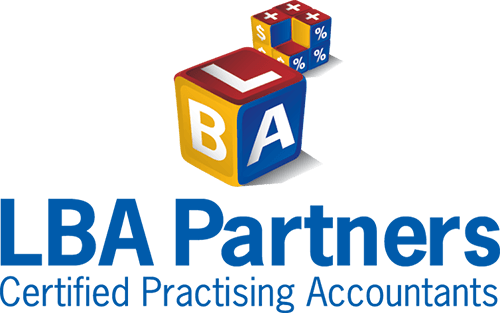P r a c t i c e U p d a t e
September 2011
Spring carnival, year-end and other staff parties
A key part of the ATO's Compliance Program is increasing their focus on non-complying taxpayers in the GST system, as well as those who fail to report some or all cash transactions.
To this end, the ATO has increased its scrutiny of businesses deliberately not reporting cash income, with over 1.4 million small businesses evaluated against the ATO's "sophisticated risk detection systems". The ATO also states: "While it is not illegal to trade in cash, it is illegal to not report it".
As an example of their compliance activity, a director in WA has been sentenced to 3 years jail, with a non-parole period of 20 months, for understating cash business sales by over $5.6 million and for the intent to underpay GST obligations by around $514,000.
The ATO also reported that they received over 44,000 'contacts' last year, including calls, letters, faxes and emails from the community relating to those who may be doing the wrong thing in relation to their obligations (via the ATO's Tax Evasion Referral Centre).
Another successful prosecution resulted in a NSW solicitor being sentenced to 6 years jail for claiming $1.6 million in fraudulent rental deductions for a property over a period of 12 years.
The property had been declared as an investment property during this time, but evidence proved that the defendant and his family were actually living in the property, and that the property was not being used to produce assessable income.
Meaning of 'cost price' of a car for FBT purposes
Editor: The ATO has set out their opinion on how, for fringe benefits tax (FBT) purposes, various arrangements may affect the 'cost price' of a car.
This is relevant for the purposes of determining the taxable value of car fringe benefits.
The cost price of a car owned by a person (i.e., the employer or the lessor, such as a Fleet Management Company) will be the amount of the purchase price that has been borne by that person (inclusive of GST, luxury car tax and dealer delivery charges where applicable), as well as other amounts which are directly attributable to the acquisition or delivery of a car.
- In addition, some amounts may reduce the cost price, including:
- fleet discounts, or any other incentives or discounts that are applied by a car dealer to reduce the purchase price of a car;
- manufacturer rebates paid directly or indirectly to purchasers; and
- he value of a trade-in vehicle provided by the employee to a car dealer (or a cash payment made by the employee) that reduces the purchase price for the employer or the lessor.
However, insurance costs and extended car warranties are not directly attributable to the acquisition or delivery of a car and are not included in the 'cost price' of the car.
ATO Data Matching: Flood and cyclone reconstruction levy
The ATO will request and collect names and addresses of approximately 735,000 individuals who received the Australian Government Disaster Recovery Payment, and New Zealand citizens holding a special category visa who received an ex-gratia payment from Centrelink.
This information will be electronically matched with certain sections of ATO data holdings to automatically exempt individuals from the Temporary flood and cyclone reconstruction levy and identify non compliance with lodgment obligations under taxation law.
Is an investment made by a trustee always on capital account?
Editor: Some people are under the impression that any investment made by a trust will be a capital investment, meaning that any capital gain made on selling that investment may be able to access the 50% capital gains tax (CGT) discount.
However, this may not always be the case.
The mere fact that a gain or loss from an investment is made by trust (i.e., by the trustee of a trust) is not conclusive as to whether the gain or loss is on revenue or capital account for tax purposes.
That is, the character of a gain or loss must generally be determined having regard to all of the relevant facts and circumstances.
If a disposal of an investment by a trustee amounts to no more than a mere realisation or change of investment, the gain or loss will be on capital account, and the 50% discount may be available.
However, unless the tax law specifically treats it as being on capital account, the gain or loss is on revenue account for tax purposes (and taxed at normal rates without a discount) if it is determined that the gain or loss was from:
- a normal operation in the course of carrying on a business of investment;
- an extraordinary operation, but one entered into with the intention of making a profit or gain; or
- a one-off or isolated transaction where the investment was acquired in a business operation or commercial transaction for the purpose of profit-making.
The ATO will look at the nature of the trust and the terms and content of the trustee's duties, as well as other important considerations, as part of the characterisation process.
Government committed to superannuation reforms
At a recent speech commemorating the twentieth anniversary of the introduction of the superannuation guarantee regime, the Assistant Treasurer reaffirmed the Government's commitment to increasing the minimum superannuation guarantee percentage from 9% to 12%.
Editor: The Government first announced this policy on 2 May 2010. Although it has yet to be legislated, the plan is to increase the super guarantee by 0.25% in 2013/14, and progressively increase it in small increments until it reaches 12% in the 2019/20 income year.
The planned Minerals Rent Resource Tax (MRRT) is linked to this reform because the MRRT is expected to pay for the tax concessional treatment of the additional 3% superannuation guarantee (i.e., due to contributions being taxed at 15% instead of the marginal personal income tax rate).
He also reiterated their policy to effectively ensure that no tax is paid on the 9% super contributions for most Australians earning up to $37,000 (Editor: By means of a direct contribution from the Government of up to $500 annually into the superannuation accounts of eligible members, from 1 July 2012).
ATO warning about illegally accessing super early
The ATO is concerned about the number of illegal schemes being promoted that offer people access to their super savings early.
In addition to paying excessive fees or commissions (sometimes in excess of 30% of their super balance) a fund member could be taxed at rates as high as 46.5%, even if the amounts are repaid to the fund.
The ATO also warns people to be wary of identity theft and fraud, as these thefts can go unnoticed for some time and cause long term problems for the individual in obtaining finance in the future.
Fund members may access their super early if they are experiencing financial hardship or have strong compassionate reasons.
Editor: Please speak to us if you wish to access your super.
Please Note: Many of the comments in this publication are general in nature and anyone intending to apply the information to practical circumstances should seek professional advice to independently verify their interpretation and the information's applicability to their particular circumstances.
Management Consulting
We have the know-how and experience to offer advice that helps you run your business more effectively.
Self-Managed Superannuation Funds
At LBA Partners we provide the professional advice you need to manage your own fund and greatly simplify the process for you.



